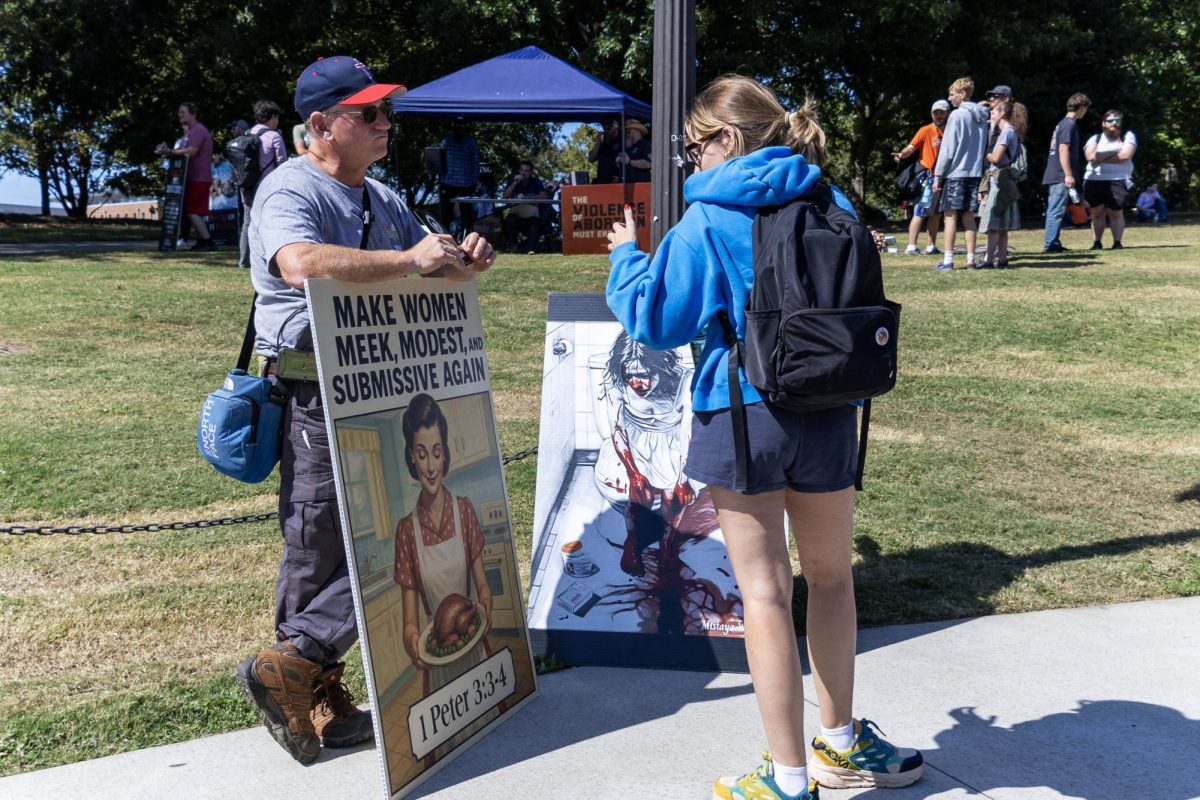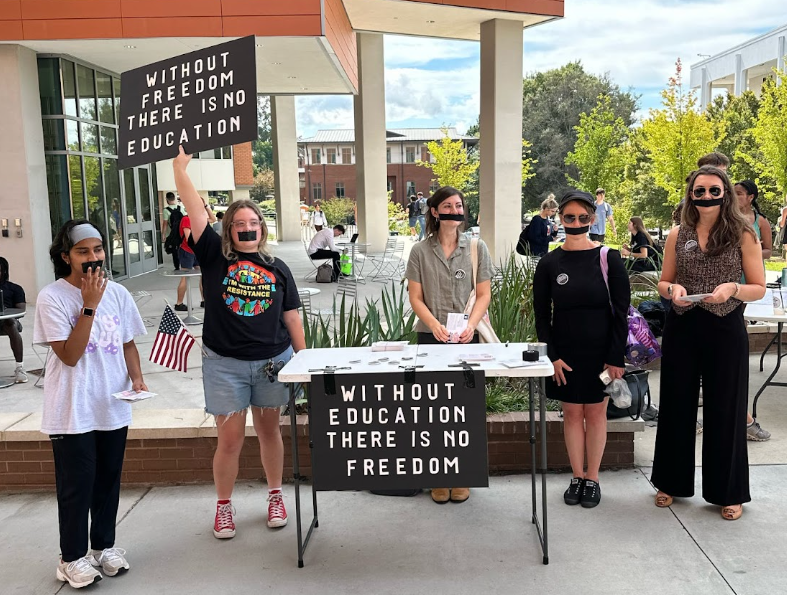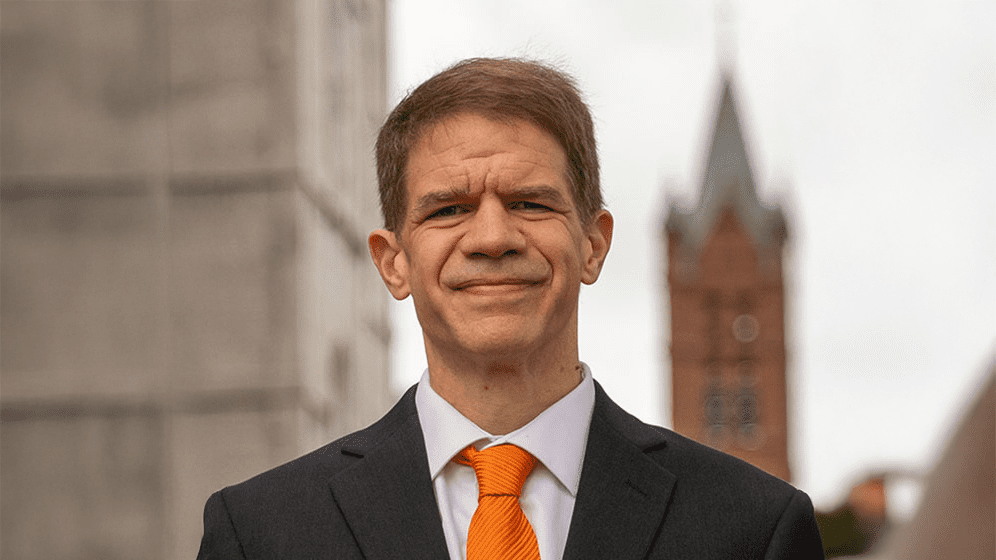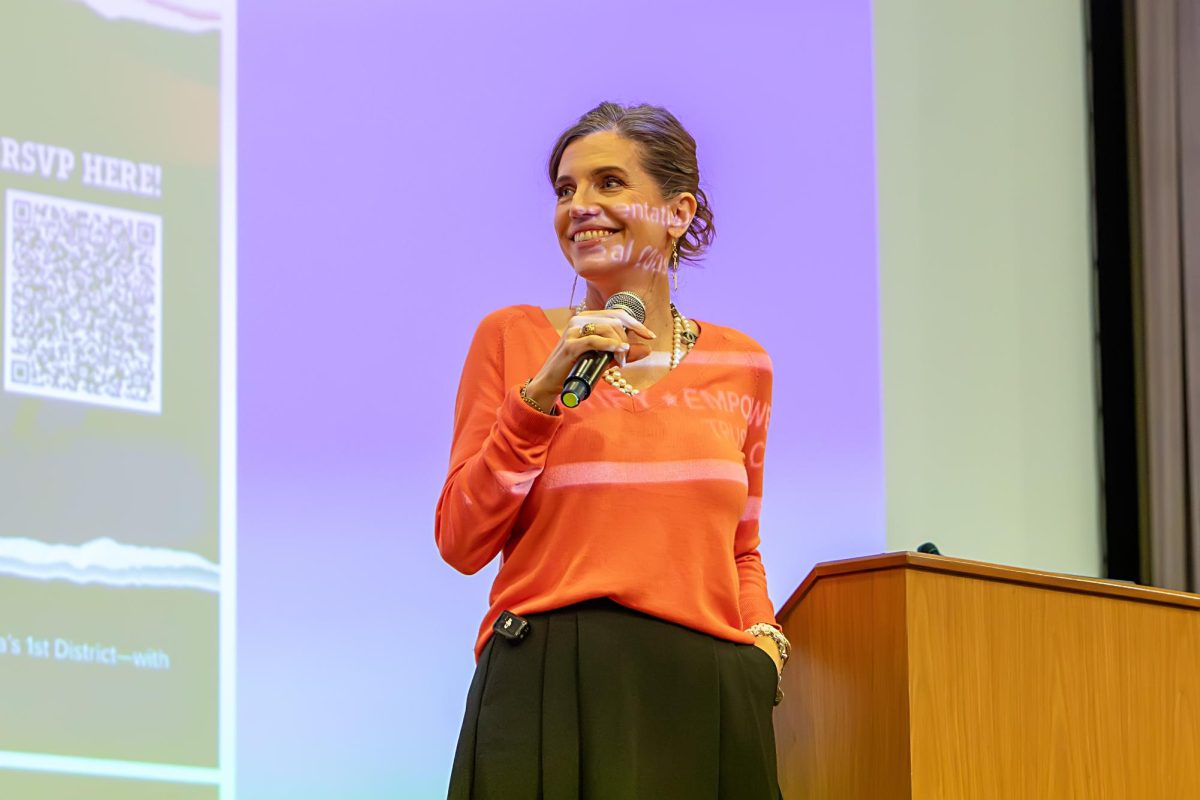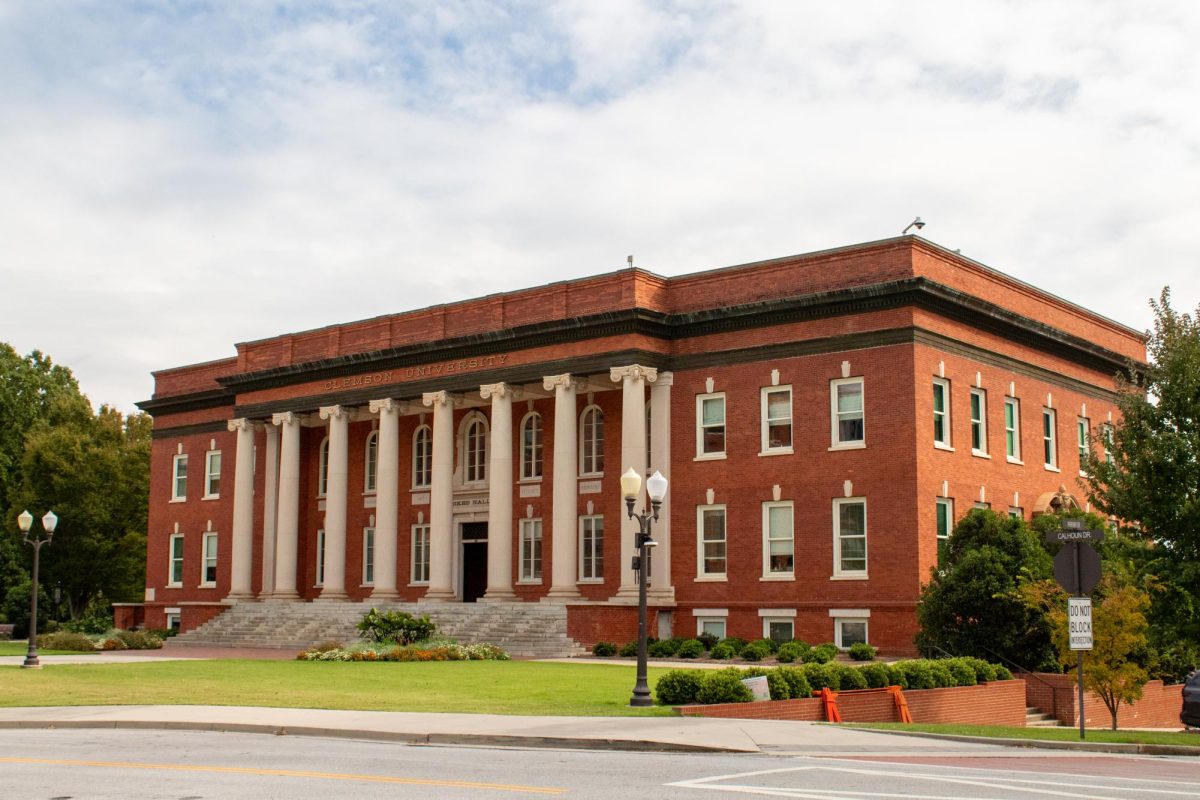On the night when four CUSG senators stood before their peers and submitted a resolution for the creation of an LGBTQIA+ LLC at Clemson, they spoke of plans reaching far beyond a new residential community. When the resolution passed by acclamation, these four students were intimately aware of the change that was coming to not only Clemson’s residence halls, but also to its academics. (Full coverage of the resolution and the four students who spearheaded it can be found here.)
Tyler McDougald, a junior English and history major, was the instigator of the effort, and he was joined by three other students and senators at the front of the senate chambers. Cassidy Smith, a senior industrial engineering major, was responsible for writing much of the resolution. Sophie Finnell, a junior psychology major, managed communication with various LGBTQIA+ organizations around campus.
Andrew Gasparini, an alumnus who majored in history and political science, was placed in charge of the academic aspect of the LLC. In the moments before the senate voted on the proposal, Gasparini also gave a speech to his fellow senators.
Between personal epithets that demonstrated the individual impact an LGBTQIA+ LLC could have on students, Gasparini spoke of a creative inquiry (CI) that would begin the fall semester of 2020. The CI was a necessary academic component of the LLC, which is now known as Lavender Place. (The LLC has since been approved by Housing, with full coverage provided here.) Additionally, the CI was meant to ensure that Lavender Place was the ideal final product of a queer space.
Now, WS 4900: LGBTQ+ Learning Communities: Queering University Spaces is Clemson’s first permanent course to focus on LGBTQIA+ topics and issues. The class is only a couple weeks away from completing its first semester.
“I noticed coming into Clemson that there was a lack of academic scholarship regarding queer studies here,” Gasparini said in his address to the senate. “It was clear that Clemson was missing a growing field in the academic world.”
While the English department spontaneously offered a class focusing on LGBTQIA+ love stories and the history department once featured a class on queer identities in South Asia, Gasparini sought to provide not only a regularly-scheduled academic course for students, but also a way for students to connect with faculty who are allies or members of the LGBTQIA+ community.
The faculty member who volunteered to teach the class was Rachel Wagner, a professor in the education department. Wagner also worked closely with a leadership team to bring the CI into reality. The team consisted of Kim Carter, an academic advising and coaching specialist from the Academic Success Center; Gina Ciuluffo, a graduate student in Student Affairs; and McDougald, the student senator who originally sparked the flame that WS 4900 grew into. McDougald was also a student in the CI for its first semester.
In the fall semester, approximately eight students partook in the CI. The students read various essays and conversations regarding queer theory, and several guest speakers also made appearances throughout the semester. Wagner, as a gender scholar, also engaged in the material as she was leading the discussions.
“We are focusing on defining terms and concepts and identifying constructs that help us understand what we mean by queer and queering,” Wagner said. “We are collectively sourcing a dynamic compendium of concepts related to LGBTQIA+ studies and queer theory that we can draw upon to ground the eventual research project.”
Each student also worked to complete a research project on the idea of queering an idea or space of their choice. The projects would ideally work towards the main goal of the CI to research and define queer spaces in what Wagner described as a “three semester arc.”
“These research projects can take whatever creative form the students deem appropriate, provide the opportunity to reflect on where Clemson University is in its journey for inclusivity, and potentially draw conclusions on how best to reach that progress so many sexual and gender minority students deserve and require on and off campus,” Gasparini said.
Wagner also believes in the growth that researching ways to make explicitly queer spaces at Clemson will bring. In acting against the “gender regimes” that hinder the lives of LGBTQIA+ community members, Wagner aims to further a project that is inherently liberatory. Just as the LLC offers residential options to students who may not feel comfortable in the current communities, the CI offers opportunities to explore and research ideas outside of society’s expectations.
“It’s time we not only acknowledge but celebrate our differences at Clemson, coming closer to resembling the outside world and understanding diversity is always a strength when it’s appreciated,” Gasparini said.




